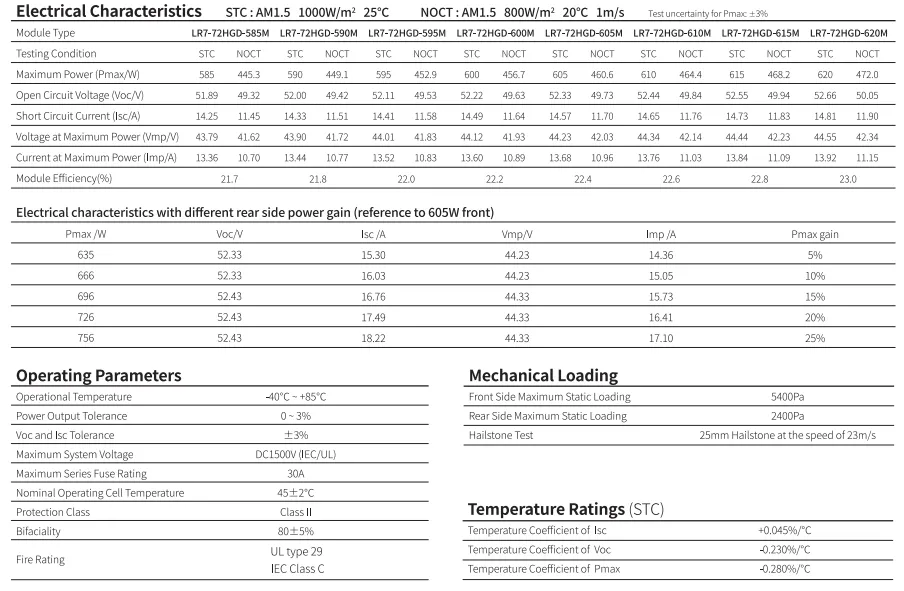Exploring the Benefits and Features of Solar Inverters for Your Home Energy System
Understanding Solar Inverters The Heart of Your Solar Energy System
As the world increasingly shifts towards sustainable energy sources, solar energy has emerged as one of the most viable options. At the heart of any solar power system is the solar inverter, a crucial component that often goes overlooked by many consumers. In this article, we will delve into the function, types, benefits, and advancements in solar inverters, all of which contribute to the optimization of solar energy production.
What is a Solar Inverter?
In simple terms, a solar inverter is an electronic device that converts the direct current (DC) generated by solar panels into alternating current (AC), which is the form of electricity used in most household appliances. The ability to transform energy into a usable form is essential for the effectiveness of residential and commercial solar power systems. Moreover, solar inverters also play a critical role in maximizing energy output and ensuring the reliability of the entire solar energy system.
Types of Solar Inverters
There are three primary types of solar inverters string inverters, microinverters, and power optimizers
. Each type has its unique advantages and is suitable for different installation scenarios.1. String Inverters This is the most common type of inverter used in residential solar systems. In a string inverter setup, multiple solar panels are connected in series, forming a “string” that connects to a single inverter. While they are cost-effective and easy to install, their performance is dependent on the weakest panel in the series. Therefore, if one panel is shaded or malfunctioning, it can reduce the overall efficiency of the system.
2. Microinverters Unlike string inverters, microinverters are attached to each individual solar panel. This allows each panel to operate independently, maximizing energy production even if one panel is partly shaded. Although they come with a higher upfront cost, they often provide better performance in varying conditions and are suitable for rooftops with complex layouts.
3. Power Optimizers These devices are similar to microinverters but are not complete inverters themselves. Instead, they are installed on each panel and work with a central string inverter. Power optimizers enhance energy production by ensuring that each panel operates at its maximum efficiency. They represent a middle ground between string inverters and microinverters.
Benefits of Solar Inverters
solar inverter video

Solar inverters offer numerous benefits beyond just converting DC to AC power
- Energy Management Modern inverters come with sophisticated energy management systems that monitor electricity production and consumption, enabling homeowners to optimize energy usage.
- Grid Interaction Most solar inverters on the market today are equipped with features that allow them to interact with the grid, contributing excess energy back to the power grid through net metering programs. This can lead to significant savings on energy bills.
- Safety Features Good quality solar inverters include built-in safety mechanisms that protect the solar panel system from overheating, power surges, and other electrical faults.
Advancements in Solar Inverter Technology
The solar industry is constantly evolving, with exciting innovations in inverter technology surfacing regularly. One notable advancement is the integration of smart technology into solar inverters. These smart inverters can communicate with home smart systems and provide users with real-time insights into their energy consumption patterns.
Another significant development is the rise of bifacial panels and their complementary inverters, which capture sunlight from both sides of the panel. This technology can significantly increase energy yield, and inverters designed for these systems can optimize their performance further.
Conclusion
In conclusion, solar inverters are indispensable components of solar energy systems, transforming the way we harness and use renewable energy. With advancements in technology, the choice of inverter type has become broader, allowing consumers to select systems tailored to their unique energy needs. By understanding the vital role that inverters play, homeowners can make informed decisions and maximize the benefits of their solar energy investments. Whether for environmental reasons or economic incentives, investing in a solar energy system with the right inverter is a step towards a sustainable future.
-
String Solar Inverter: The High-Efficiency Solution for Smart Solar EnergyNewsJul.14,2025
-
Revolutionizing Rooftop Energy with the Power of the Micro Solar InverterNewsJul.14,2025
-
Power Independence with Smart Off Grid Solar Inverter SolutionsNewsJul.14,2025
-
On Grid Solar Inverter: Powering the Future with Smart Grid IntegrationNewsJul.14,2025
-
Monocrystalline Solar Panels: High-Efficiency Power for the Future of Clean EnergyNewsJul.14,2025
-
Bifacial Solar Panel: A Smarter Investment for Next-Generation Energy SystemsNewsJul.14,2025







